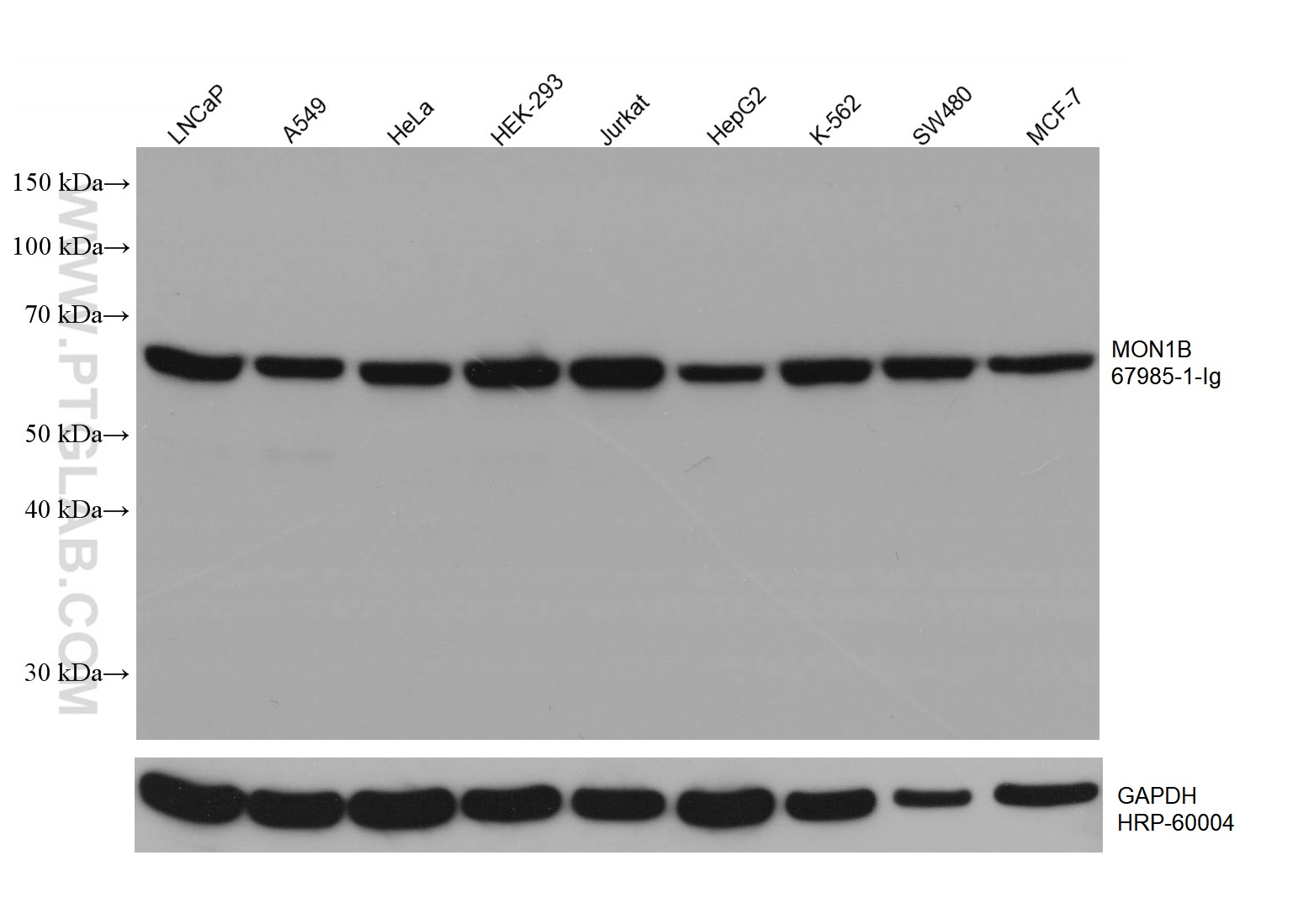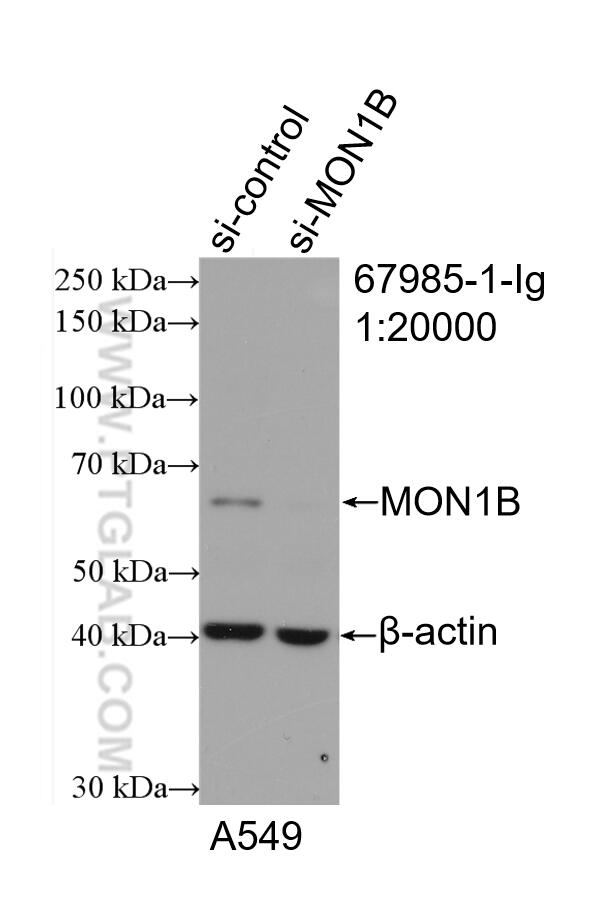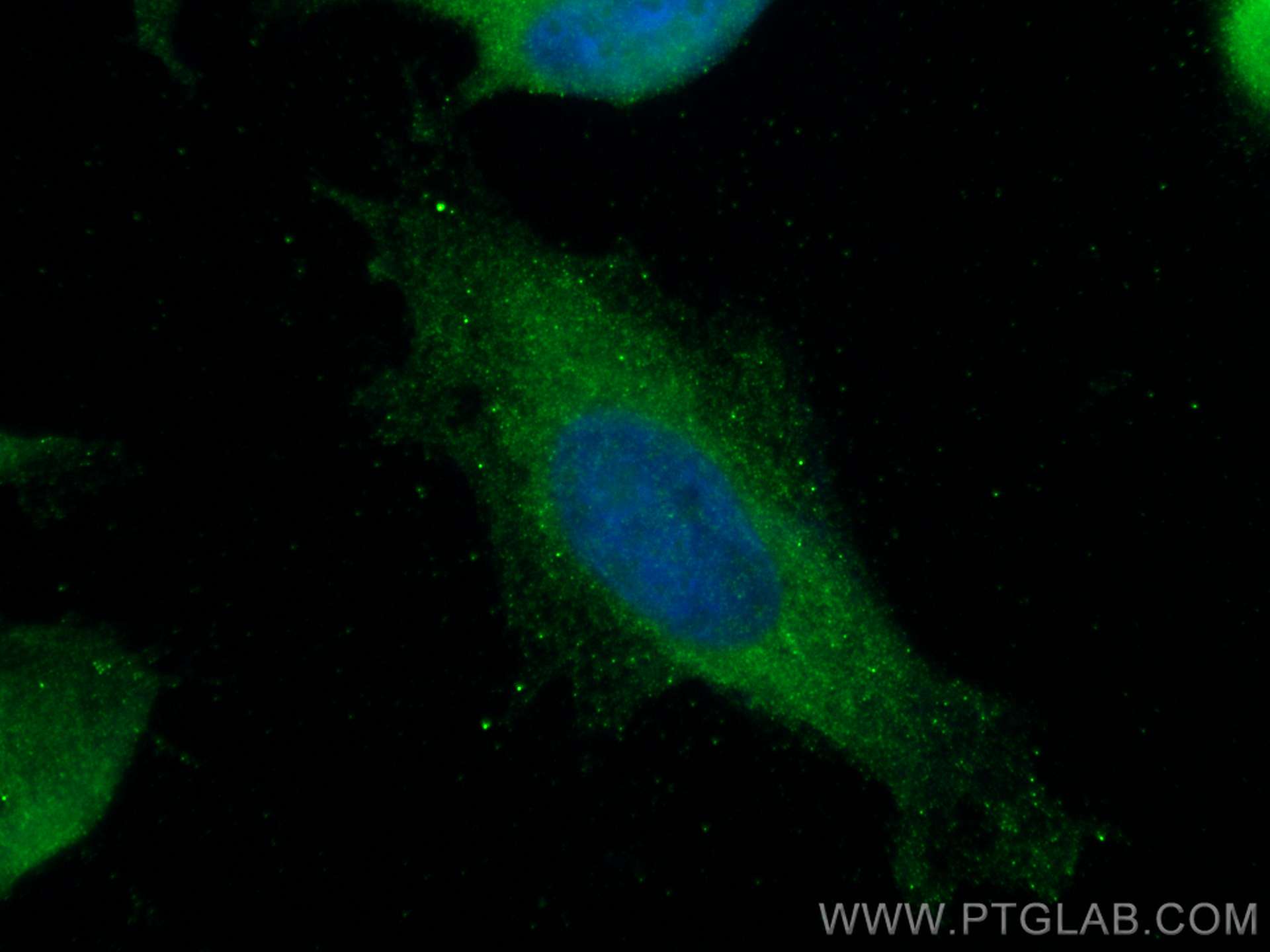验证数据展示
经过测试的应用
| Positive WB detected in | LNCaP cells, HeLa cells, A549 cells, HEK-293 cells, Jurkat cells, HepG2 cells, K-562 cells, SW480 cells, MCF-7 cells |
| Positive IF/ICC detected in | HeLa cells |
推荐稀释比
| 应用 | 推荐稀释比 |
|---|---|
| Western Blot (WB) | WB : 1:2000-1:10000 |
| Immunofluorescence (IF)/ICC | IF/ICC : 1:200-1:800 |
| It is recommended that this reagent should be titrated in each testing system to obtain optimal results. | |
| Sample-dependent, Check data in validation data gallery. | |
产品信息
67985-1-Ig targets MON1B in WB, IF/ICC, ELISA applications and shows reactivity with Human samples.
| 经测试应用 | WB, IF/ICC, ELISA Application Description |
| 经测试反应性 | Human |
| 免疫原 | MON1B fusion protein Ag9920 种属同源性预测 |
| 宿主/亚型 | Mouse / IgG2b |
| 抗体类别 | Monoclonal |
| 产品类型 | Antibody |
| 全称 | MON1 homolog B (yeast) |
| 别名 | HSRG1, KIAA0872, MON1 homolog B (yeast), MON1B, SAND2 |
| 计算分子量 | 547 aa, 59 kDa |
| 观测分子量 | 59 kDa |
| GenBank蛋白编号 | BC024277 |
| 基因名称 | MON1B |
| Gene ID (NCBI) | 22879 |
| RRID | AB_2918734 |
| 偶联类型 | Unconjugated |
| 形式 | Liquid |
| 纯化方式 | Protein A purification |
| UNIPROT ID | Q7L1V2 |
| 储存缓冲液 | PBS with 0.02% sodium azide and 50% glycerol , pH 7.3 |
| 储存条件 | Store at -20°C. Stable for one year after shipment. Aliquoting is unnecessary for -20oC storage. |
背景介绍
Vacuolar fusion protein MON1 homolog B (MON1B) is also named as HSRG1, KIAA0872 and SAND2, and belongs to the MON1/SAND family. The membrane recruitment of MON1B, a homolog of yeast MON1 protein in mammals, is essential for vesicular fusion of early endosomes (PMID:26987402).
实验方案
| Product Specific Protocols | |
|---|---|
| WB protocol for MON1B antibody 67985-1-Ig | Download protocol |
| IF protocol for MON1B antibody 67985-1-Ig | Download protocol |
| Standard Protocols | |
|---|---|
| Click here to view our Standard Protocols |



